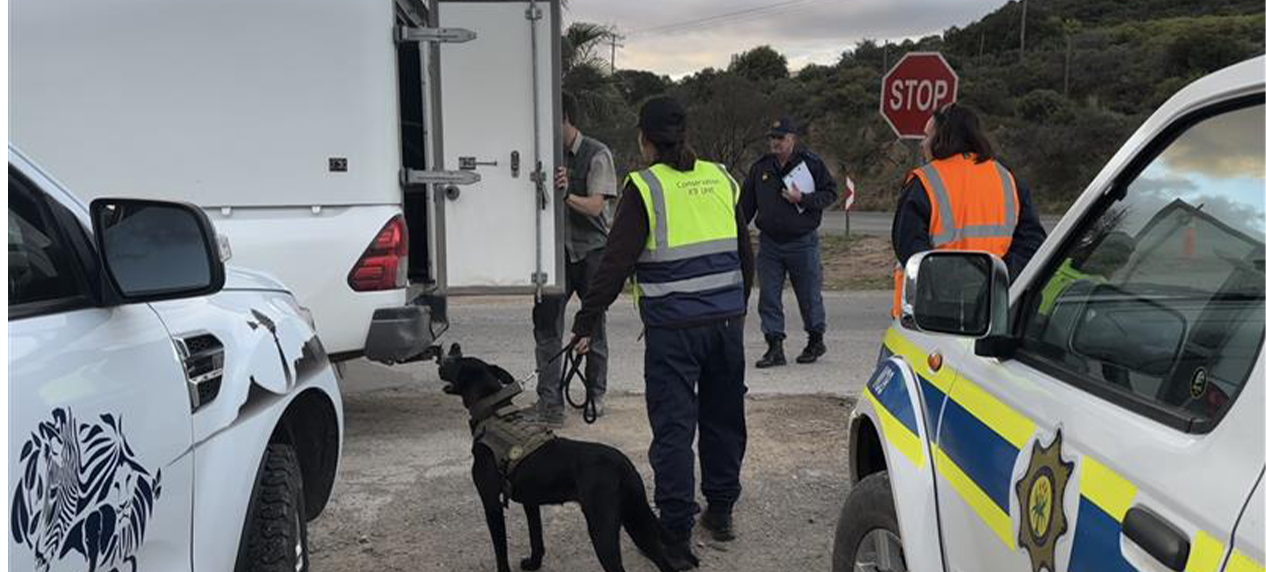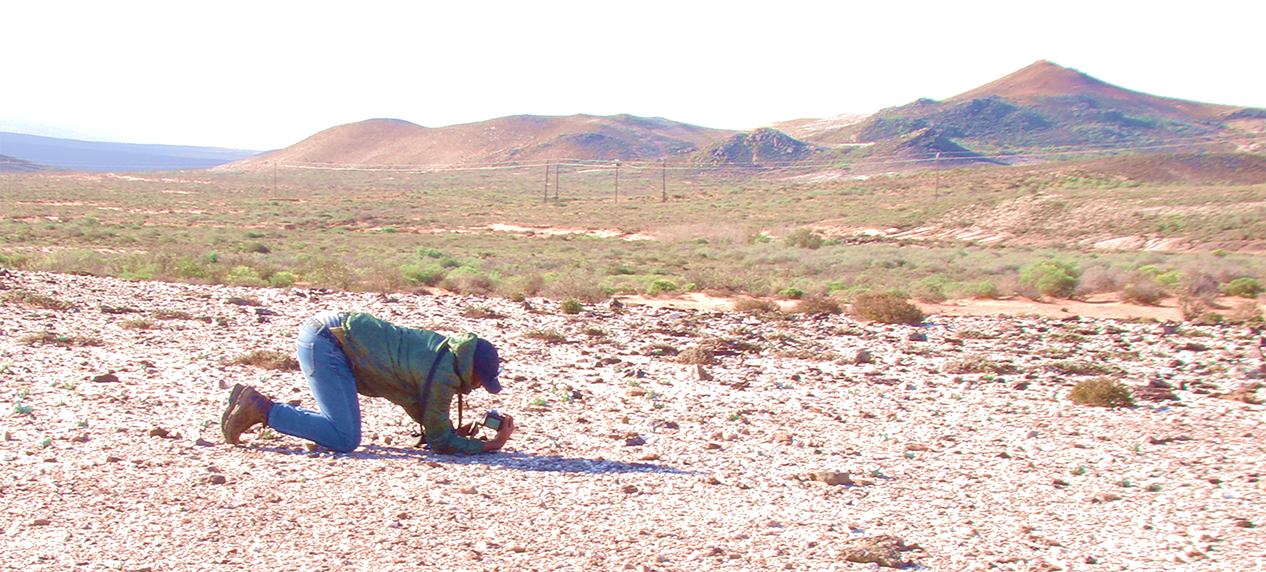Plant poaching: An underestimated threat to biodiversity
By Esther Matthew

Roadblocks for illegally traded wildlife products
Succulent poaching has shown a marked increase in South Africa in recent years. Many of these plants will literally bring you to your knees due to their tiny size. But, once you see the details on them, you are immediately transported to world that many people often walk over without noticing.
Unfortunately, poachers have taken note of this, which has resulted in an incredible increase in the illegal harvesting of these unique plants over the last five years, with approximately half a million plants poached in a year. This is a significant problem, with some plant species already pushed to extinction in the wild.
For the EWT Conservation Canine Unit and the Drylands Conservation Programme the solution to most conservation problems is getting nosy, and with that we mean using scent detection dogs to assist us in our conservation work, and in sniffing out any plants being smuggled. Dogs have an remarkable scent ability and are able even find a drop of odour in a waterbody the size two Olympic swimming pools! Keeping that in mind, our two programmes teamed up in 2023 and to train the first three scent detection dogs to help combat the succulent plant poaching problem. In joint operations, our efforts were aimed at screening vehicles at roadblocks and parcels at courier companies. In the first 2 months of working with these dogs we were able to assist the local law enforcement officials supported with four cases, resulting in nine arrests. So, it turns out being nosy is not always a bad thing, and it can even help save our endemic plants.
Thanks to the Dertour Foundation, Endangered Ink and Tourvest, we can continue the work with our dogs to help combat the poaching problem for not only plants but also a variety of other wildlife contraband


Roadblock with Police
